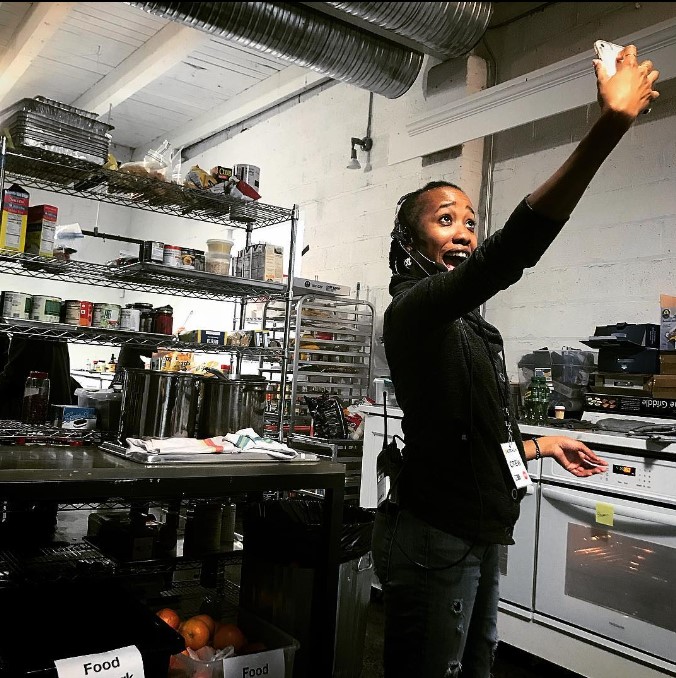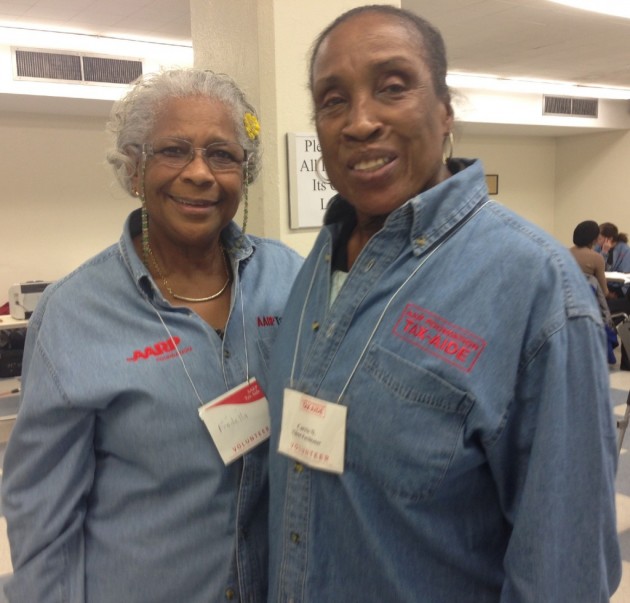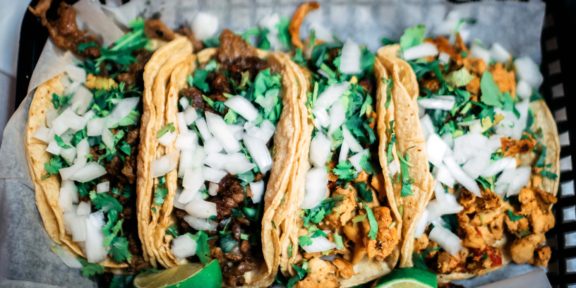By Nylah Lee
Howard University News Service
Sporting sister locs and a tattoo of a spoon and fork, Nikkia “Nikki” Scott recounts what it took as a Black woman in culinary arts to get a seat at the table with the Gordon Ramseys and Rachel Rays. For the caterer, celebrity chef and culinary producer at the Food Network, it was an arduous path to her present success.
According to the Bureau of Labor Statistics, only 14.7% of chefs in the United States are Black, a statistic that is dwarfed by the 65.2% of chefs who are white. So, when chefs like Scott, who are unapologetically themselves, can make waves in the industry despite the obstacles, the public takes notice.
While Scott’s formal culinary journey did not begin until her late twenties, the now 36-year-old recalls that cooking piqued her interest as early as she can remember growing up in Brooklyn, New York.
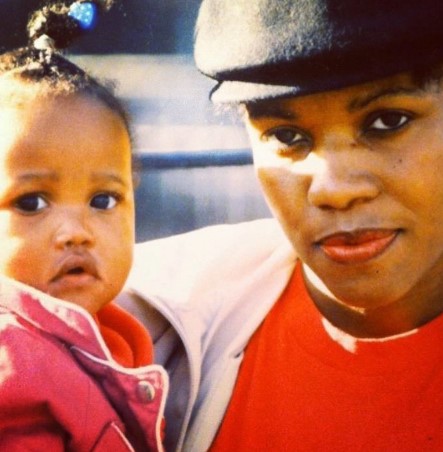
“I did a Mother’s Day event for my mom and my grandmother, and my sister Dawn helped me,” Scott said. “I was like 11 years old and we went food shopping, and we made pies and cakes. We did the whole brunch spread. And I did most of the work. Dawn kind of just supported me so I didn’t, like, burn myself or cut myself. But it’s always been there; it was always just something that I did.”
Her mother, Ellen Jones, had many of her own anecdotes of Scott as a young and budding chef. According to Jones, as well as many other family members, Scott was always creative and hands-on. However, when she was younger, she always left the kitchen a mess when she would cook. It’s quite ironic that she now swears by the concept of mise en place, the French phrase meaning “everything in its place.”
While Scott wished to attend culinary school earlier in her career, her friends and family steered her in a different direction. “Before I went to college,” Scott explained, “I wanted to go to culinary school, but everybody said, ‘Go finish your full college degree before you start thinking about culinary school.’ So, I did that, but it was always there. It was always in the back of my mind like, ‘I want to go to culinary school.’”
Scott received a bachelor’s degree in communications from SUNY Oneonta. She later worked in the interior design department of an Ikea in Brooklyn, which seemed to be an adequate fit at the time, considering her passion for furniture design. Scott, however, felt disillusioned.
“It’s really stressful because it’s Ikea,” she said. “It’s not like super high-end interior design stores. It’s literally people trying to get a $400 piece of furniture that will last at least a year and a half. So, as much work as I would put into the displays, I’d turn around and they would be completely destroyed because people don’t respect it if it’s cheap. It felt very unfulfilling.”
“So, long story short, I had a conversation with my boss at work. I was like, ‘Hey, can you let me go so I can get unemployment and go to culinary school?’ and he looked at me like I was crazy. Then he went to HR, and they agreed. So, they let me go, and then I started culinary school.”

Scott describes her experience in culinary school as fun and educational while admitting that it was difficult at times. During that time, she secured an internship at an upscale restaurant called Toro in Manhattan, where she worked 13-hour days, six days a week.
“I was in the kitchen with 24-year-olds,” said Scott, who was about 30 at the time. “It was just a different dynamic. So, I did that for about a year because I just wanted to get restaurant experience under my belt, but knew I never wanted to work in an actual restaurant because it’s really exhausting.”
After this, she worked in the cafeterias at Google’s Manhattan office. This would be her least favorite experience in the field.
“Googlers like working at Google,” she explained. “People who work at Google and people who work for Google are very different. And I worked at Google under Restaurant Associates. … So, people who work for Google get all of these perks and amenities, but I was one of the amenities.”
Scott found herself dissatisfied with the “industrial” cafeteria-style setting, as it left no room for creativity and experimentation. While her schedule was less packed than it had been during her internship, she felt too limited to continue on, and it did not help that she was making minimum wage.
She switched to freelancing for large catering companies. “I would be in all of these rich people’s houses doing private events, doing the Met Gala,” she said. “They shipped me out to Antigua to do Tory Burch’s second wedding. So that felt a lot more my speed.” Scott enjoyed working for herself and controlling her time and energy.

While she enjoyed catering, she eventually needed a more stable and consistent source of income. She also didn’t like the idea of being “pigeonholed” into one facet of the art.
At this point it was 2019, and it was clear that food media was an industry that was constantly evolving and growing in popularity. This led her to a six-month internship at the Food Network.
“Oh my God! I was a 34-year-old intern and was working with people who were [20]. That was amazing! But it was really tough because it was New York City, and I don’t know anyone who can survive on minimum wage in New York City.”
As a result, she resumed catering at night, while interning during the day, working about 70 hours each week. Executives at Food Network took notice of her initiative and offered her freelance positions until a full-time position became available. It was at this point that she assumed the role of culinary producer at Food Network.
The job was not always smooth sailing for Scott. Being the only Black person in the room too often concerned her, especially following the murder of George Floyd when many companies were trying to prove themselves as “conscious,” despite having only one or two Black employees. Her coworkers constantly saw her as a “black encyclopedia.”
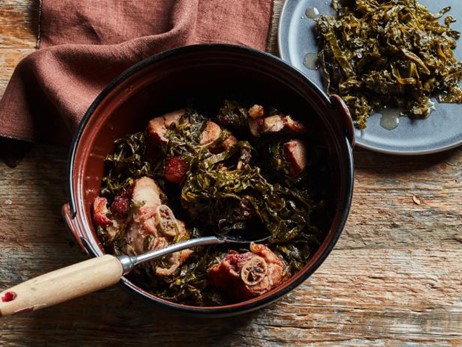
“I am not the answer for all things black.” Scott said. “My background is not Caribbean, but they’re using me as a point of reference for Caribbean food just because I am a woman of color and they had not diversified themselves enough to have options.
“So, that was something that I definitely had to address head-on with these people, with my boss specifically, and be like ‘Different departments are reaching out to me about Black people stuff, and they need to know that if it’s something that you could have Googled yourself, don’t come to me like I am your black encyclopedia.’”
Another concern was the butchering of sacred elements of soul food. “I had a whole meeting about how important potato salad is to Black people and how disrespectful it is to put raisins in potato salad. I feel like it’s important for all of us to take a stance on such things as raisins in potato salad.”
Day by day, she morphs the culinary world into the kind of place that encourages diversity, as well as cultural sensitivity.
“I am grateful to be there and kind of put a stamp of approval on things that would otherwise only get passed through the hands of middle-aged white women,” she said. “So, at least I can keep an eye out. If I’m gonna be the only one here, I have to do my due diligence. It’s not easy, but it’s not easy anywhere.”
Nylah Lee is a reporter for HUNewsService.com.

